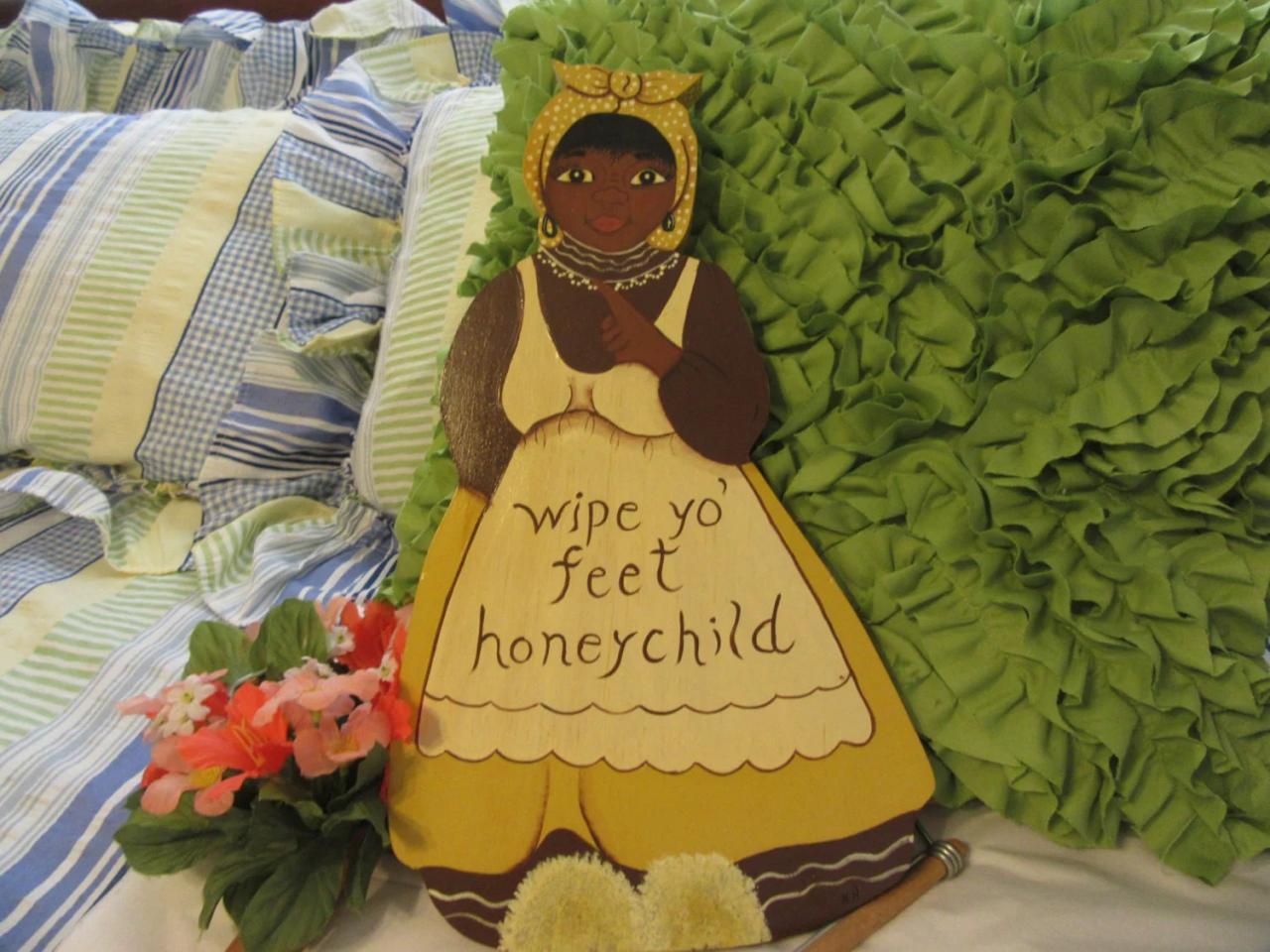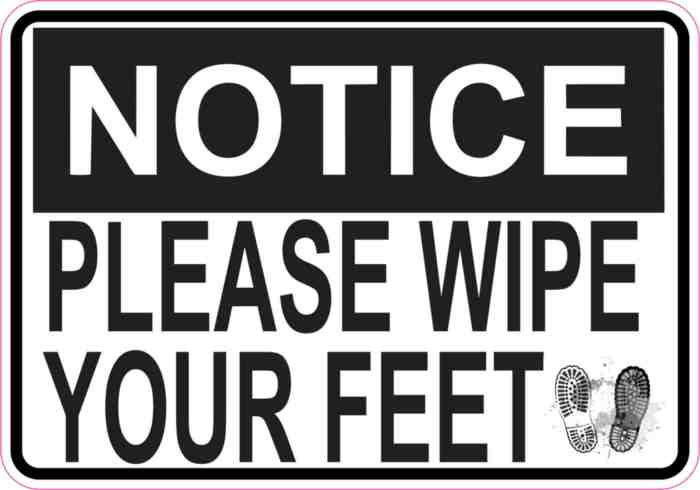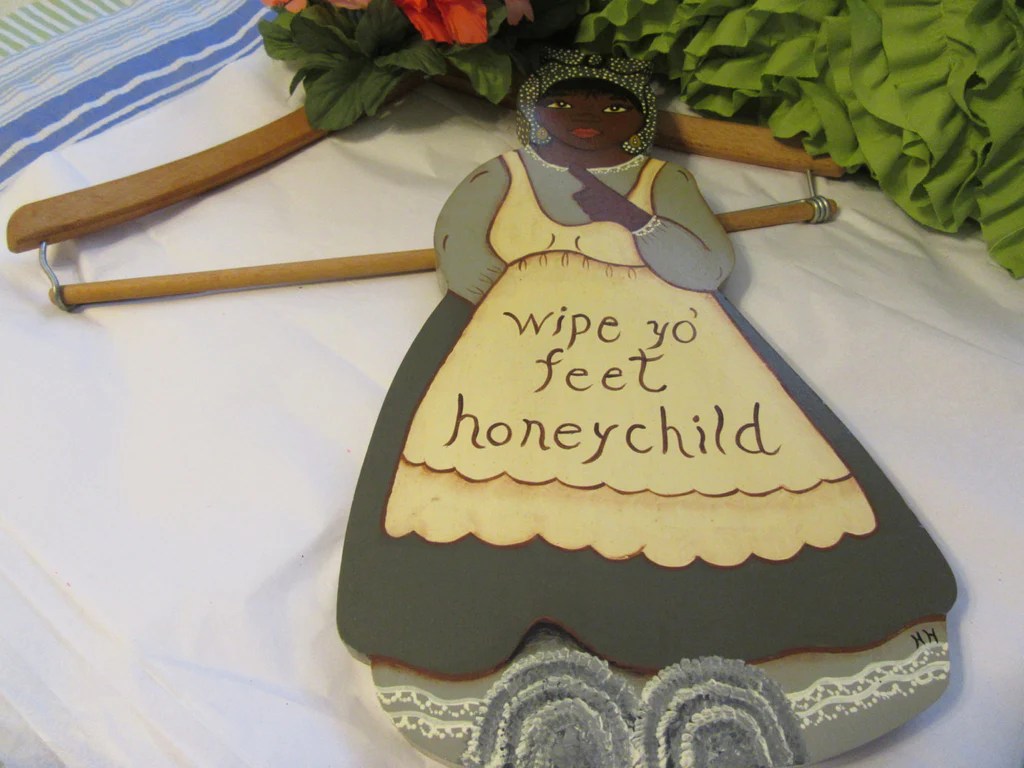Step right up, honey chile, and let’s dive into the fascinating world of “wipe yo feet honey chile.” This phrase, steeped in cultural and linguistic nuances, invites us on a journey that explores its origins, significance, and contemporary usage.
From its humble beginnings to its widespread adoption, “wipe yo feet honey chile” has evolved into a phrase that carries both historical and cultural weight.
Origin and History

The phrase “wipe yo feet honey chile” is a colloquial expression that originated in the Southern United States, particularly among African American communities. It is a reminder to remove dirt and debris from one’s shoes before entering a home, a practice that is considered both respectful and hygienic.
Evolution and Usage
The phrase likely emerged during the 19th century, when dirt roads were prevalent and shoes were often caked with mud and dust. Over time, it became a common expression in Southern households, particularly among older generations. The phrase is often used in a playful or affectionate manner, conveying a sense of hospitality and respect for one’s home.
When you step inside someone’s home, it’s always polite to wipe your feet. This simple act shows respect for the homeowner and helps keep their floors clean. As the saying goes, “Wipe yo feet honey chile.” In a similar vein, when we come before God, we should approach with humility and respect.
As it is written in He Aqui Os Doy Potestad , “He aqui os doy potestad.” This verse reminds us that we should come before God with reverence and awe, recognizing his authority and power. Just as we wipe our feet before entering someone’s home, we should cleanse our hearts and minds before approaching God.
In contemporary usage, the phrase “wipe yo feet honey chile” is still employed in some Southern communities, although its usage has become less common. It is sometimes used in a humorous or nostalgic context, evoking a sense of Southern charm and hospitality.
Cultural Significance

The phrase “Wipe Yo Feet Honey Chile” carries significant social and cultural weight. It symbolizes a deep-rooted value of cleanliness, respect, and hospitality. By asking someone to wipe their feet before entering a home, it conveys a message of caring for the cleanliness of the space and the well-being of those within it.The
phrase also reflects the cultural belief in the importance of respecting others’ property. It implies that one should not enter someone’s home without first asking permission and taking appropriate steps to ensure they are not bringing dirt or debris inside.
This practice demonstrates consideration for the homeowner’s efforts to maintain a clean and welcoming environment.
Role in Shaping Cultural Identity and Social Norms, Wipe yo feet honey chile
The phrase “Wipe Yo Feet Honey Chile” plays a crucial role in shaping cultural identity and social norms. It reinforces the importance of cleanliness, respect, and hospitality within a community. By adhering to this custom, individuals demonstrate their adherence to these values and contribute to the overall social fabric of the culture.Furthermore,
the phrase serves as a reminder of the interconnectedness of individuals within a community. It encourages people to be mindful of their actions and to consider the impact they have on others. By asking someone to wipe their feet, one is not only ensuring the cleanliness of their home but also expressing a sense of care and respect for the person entering.
Linguistic Analysis: Wipe Yo Feet Honey Chile

The phrase “Wipe yo feet, honey chile” is a colloquial expression that has been used in the Southern United States for generations. It is a request to someone to clean their feet before entering a home or other building.
The phrase is made up of several components:
- “Wipe” is a verb that means to clean or remove dirt or moisture from a surface.
- “Yo” is a possessive pronoun that means “your.”
- “Feet” is a noun that refers to the lower extremities of a human body.
- “Honey” is a term of endearment that is often used to address a woman.
- “Chile” is a term of endearment that is often used to address a child.
The phrase “Wipe yo feet, honey chile” is an example of a command. It is a request to someone to do something. The phrase is grammatically correct and follows the rules of English syntax.
The phrase has several unique linguistic features. First, it uses the possessive pronoun “yo” instead of the more formal “your.” This is a common feature of Southern speech. Second, the phrase uses the term “honey” as a term of endearment.
This is also a common feature of Southern speech. Finally, the phrase uses the term “chile” as a term of endearment. This is a term that is unique to Southern speech.
Literary and Artistic Expression
The phrase “wipe yo feet honey chile” has found its way into various forms of literature, poetry, and other artistic expressions. Its use adds a touch of colloquialism and authenticity to creative works, capturing the essence of everyday language and cultural nuances.
In literature, the phrase has been employed to evoke a sense of home, family, and tradition. For example, in Alice Walker’s novel “The Color Purple,” the character Celie uses the phrase to express her longing for a nurturing and loving environment.
In Poetry
In poetry, the phrase has been incorporated to create a sense of rhythm and rhyme. For instance, in the poem “Honey Chile” by Maya Angelou, the phrase is repeated throughout the poem, creating a musical effect and emphasizing the theme of generational wisdom and connection.
In Other Forms of Art
Beyond literature and poetry, the phrase has also made its way into other art forms, such as music and film. In music, the phrase has been used in songs by artists like Erykah Badu and Jill Scott, adding a soulful and nostalgic element to their lyrics.
In film, the phrase has been used in movies like “The Help” and “Fences,” where it serves to create a sense of authenticity and cultural context for the characters and their stories.
Contemporary Usage

In modern times, “Wipe yo feet, honey chile” continues to be used as a playful and affectionate expression, often employed to add a touch of warmth and humor to everyday interactions.
Social Media and Popular Culture
The phrase has found new life on social media platforms, where it is frequently used in captions, memes, and online conversations. Its humorous and relatable nature has resonated with users, who employ it to convey a range of emotions, from amusement to affection.
In popular culture, the phrase has been referenced in songs, television shows, and movies, further solidifying its place in the contemporary lexicon.
Essential Questionnaire
What is the origin of the phrase “wipe yo feet honey chile”?
The phrase likely originated in the Southern United States as a way to remind guests to clean their feet before entering a home.
How has the phrase “wipe yo feet honey chile” been used in literature and art?
The phrase has been used in various literary and artistic works, including poetry, novels, and films, to convey themes of hospitality, respect, and cultural identity.